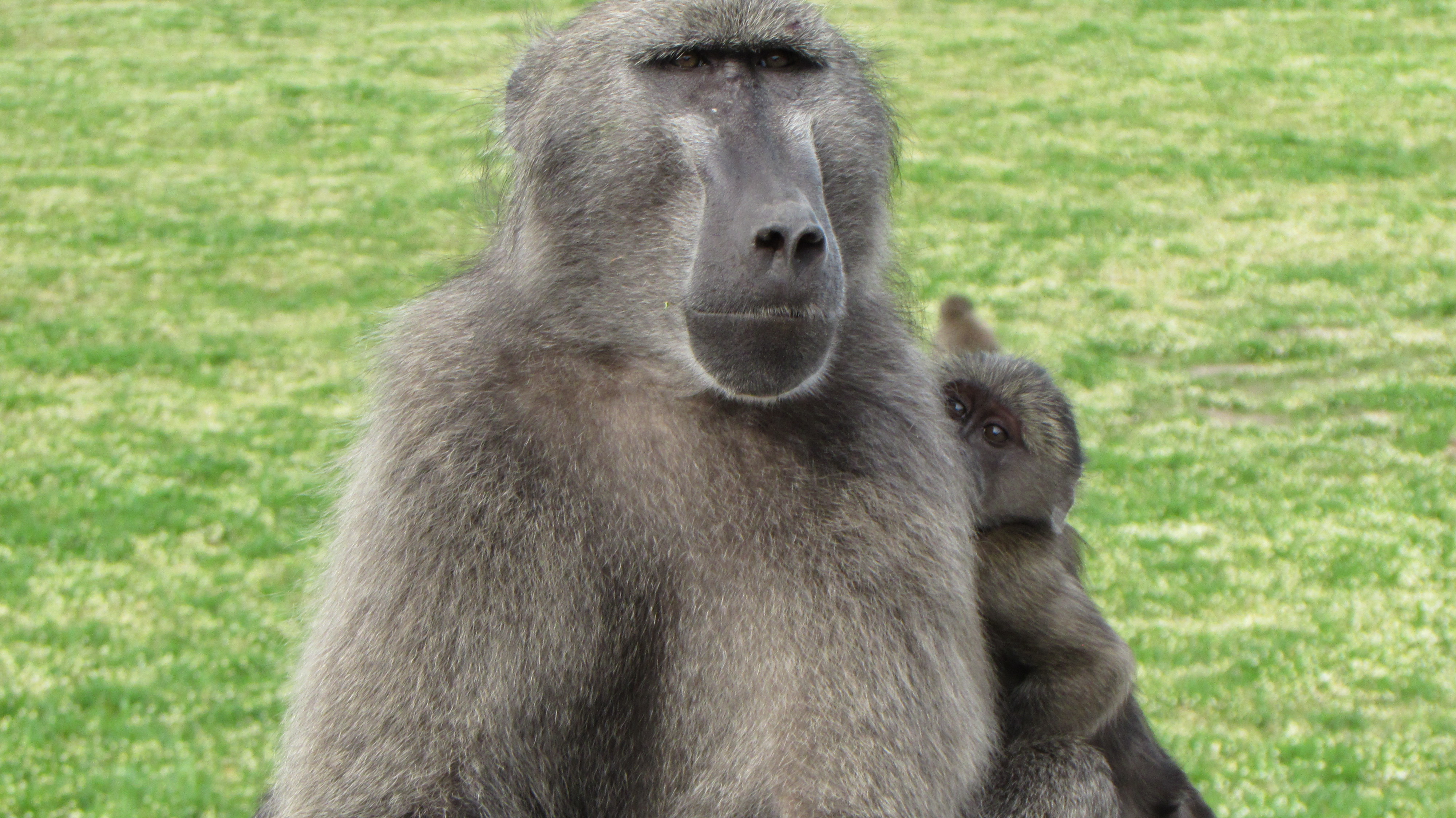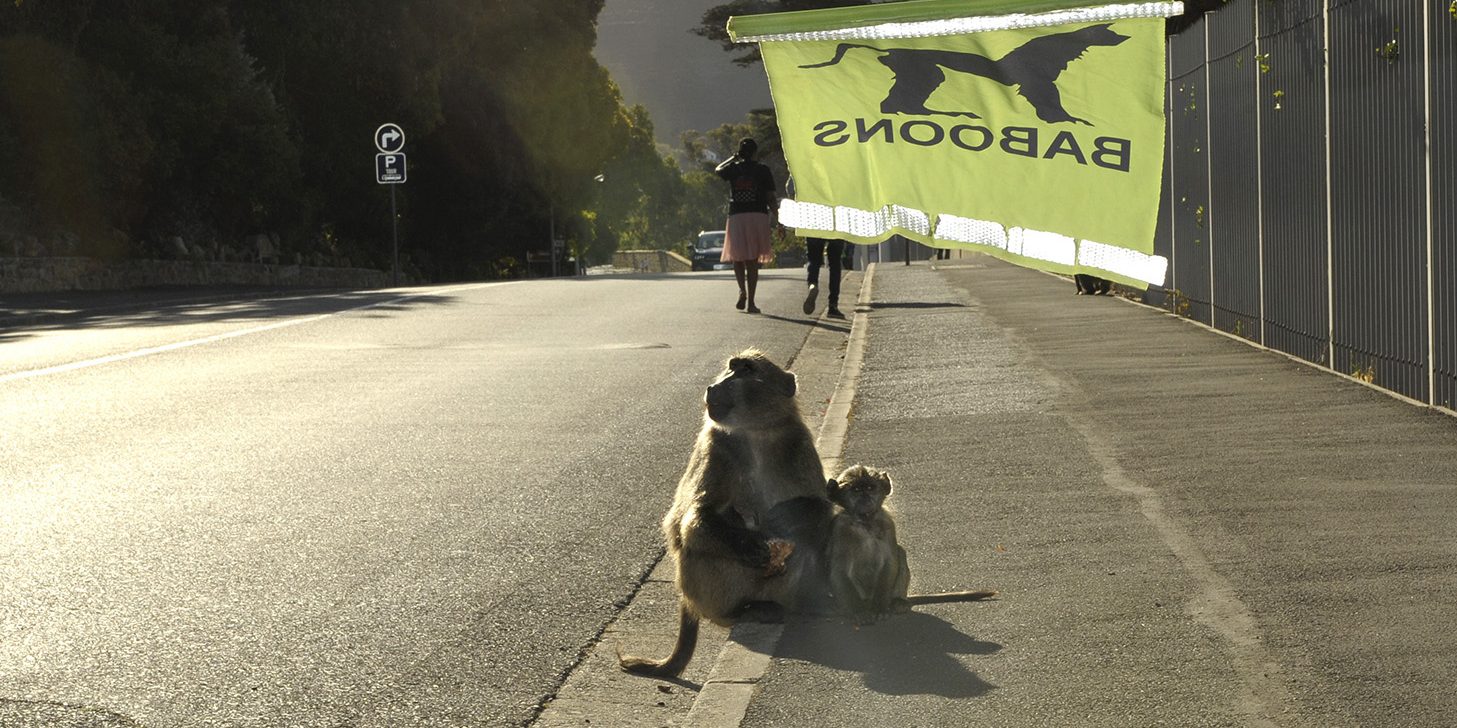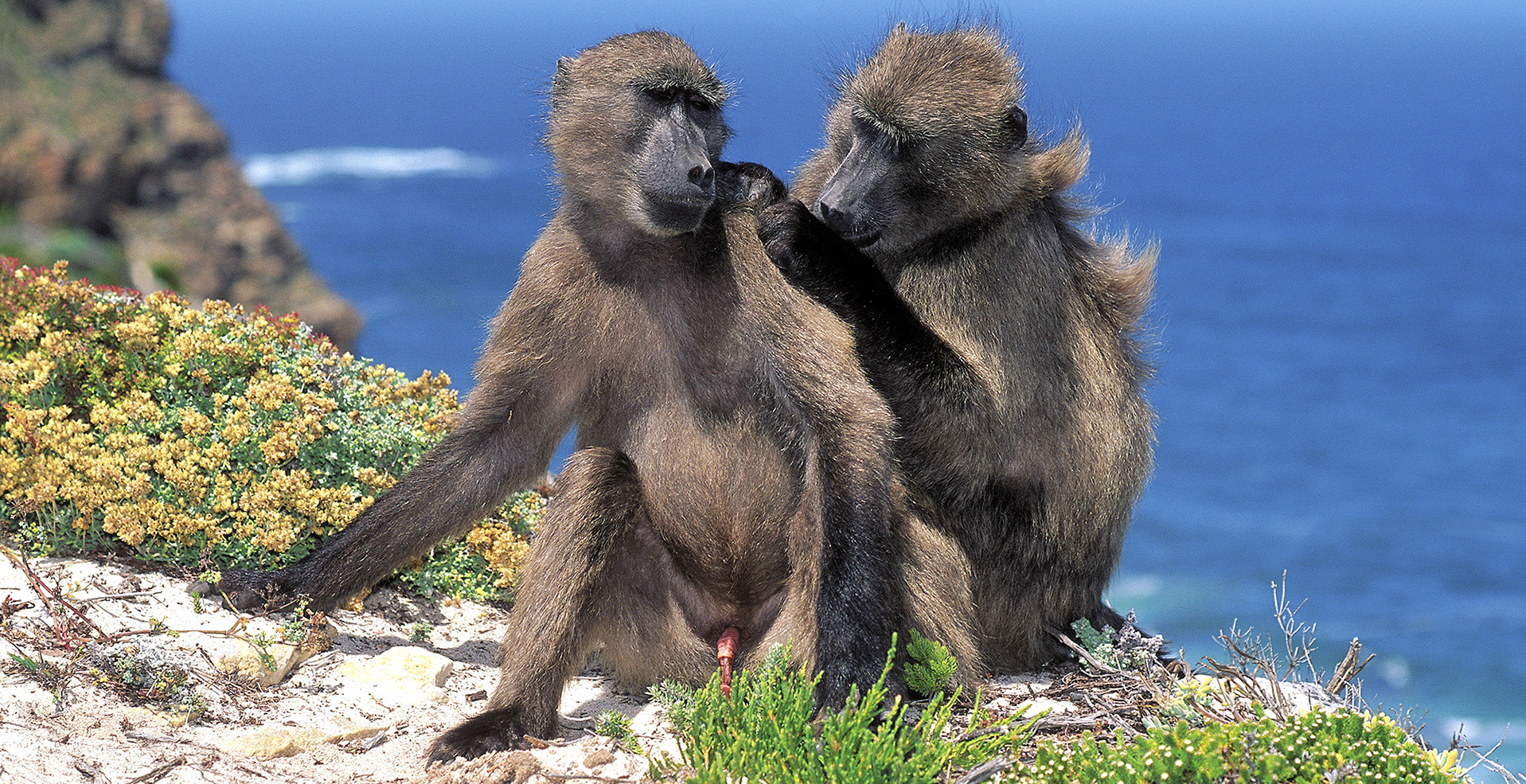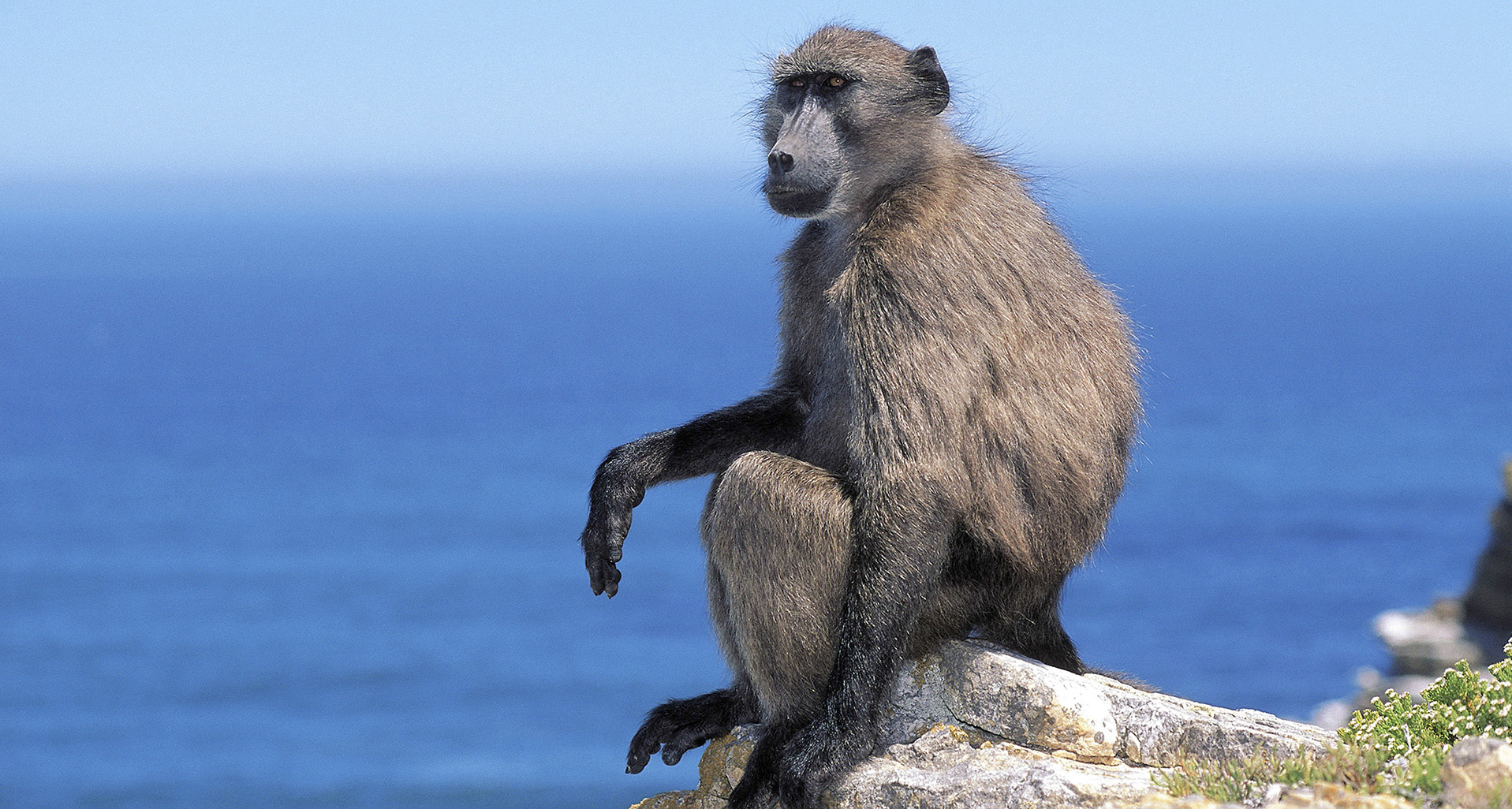Chacma baboons are highly intelligent primates who live in troops with complex and dynamic social structures. Their close proximity to expanding urban settlements in the south of the Cape Peninsula creates a massive management challenge for conservation authorities and the City of Cape Town.
Residents of these areas are awaiting the release of a long-anticipated strategic management plan for baboons by a joint task team established in 2022. In the meantime, a highly contentious politics of human-baboon relations continues to divide communities.
As Rebecca Davis’s article in Daily Maverick of 26 October 2023 (“A slaying in the Deep South: Inside the fallout from the killing of a baby baboon”) correctly suggests, strong emotions and forceful opinions are expressed by residents of Simon’s Town. There are those who see baboons as a “dangerous nuisance”, and those who “value and enjoy baboons”.
Two kinds of actions in particular incite a great deal of ire. Shooting at baboons (which is illegal) using pellets, or even bullets, can lead to deaths and is seen as simply murderous by those who are pro-baboon. Using flags to slow down traffic on the main road through the village in an attempt to protect baboons being hit by vehicles is seen by the anti-baboon camp as sentimental and dangerously reckless at times. It is viewed as a distraction from the search for effective solutions.
 Seaforth troop’s alpha male Martello with his offspring Kabili, the troop’s youngest member. (Photo: John Leslie)
Seaforth troop’s alpha male Martello with his offspring Kabili, the troop’s youngest member. (Photo: John Leslie)
Davis’s article accurately portrays the anger and frustration experienced by both sides. Sadly, when it comes to current thinking on solutions to this wildlife management conundrum, she muddies the waters. The article is silent on this central question, despite the availability of a wealth of research and local expertise on the options available, and informed public discussion over the past year and a half.
This is a great pity, given Davis’s reputation for acuity and her considerable skills as a journalist.
Looking for solutions
Here we present a view on these contentious issues that has emerged within an ongoing Baboon Dialogue Initiative, launched by the Simon’s Town Civic Association in April 2022 and facilitated by ourselves. (We are not baboon experts, it must be stressed. Rather, our skills lie in the design and facilitation of processes to address complex and often contested problems).
Over 18 months, we have facilitated about a dozen workshops attended by several hundred people in Simon’s Town, Scarborough and Kommetjie. In some of these, residents have engaged directly with acknowledged experts to improve their understanding of both problems and potential solutions.
These experiences are likely to have informed many of the 800 responses received by the joint task team to its first draft of a baboon strategic management plan, released earlier this year. Here we summarise our understanding of the key issues and options.
 Volunteers warn motorists that baboons are crossing. Vehicles often travel much faster than the speed limit on Queens Road, Simon's Town. (Photo: Joyrene Kramer)
Volunteers warn motorists that baboons are crossing. Vehicles often travel much faster than the speed limit on Queens Road, Simon's Town. (Photo: Joyrene Kramer)
The causes of the baboon problem
Simplifying a complex problem to some degree, the two root causes of the problem appear to be: (a) The declining area available for baboon foraging activities as a result of expanding human settlements, especially on the nutrient-rich lower slopes of the mountain; and (b) Baboons’ great capacities for learning and their consequent “habituation” over time to both human foods and human presence.
Together these mean that baboon troops are spending more and more of their time looking for calorie-rich foods in residential and business areas along the peninsula. Poorly managed food waste has meant that they are often successful.
Baboons have become habituated to the herding tools used by rangers, including paintball markers and ‘bear bangers’.
A first management programme involved rangers “herding” baboons out of urban areas. This was initiated in Kommetjie in the early 2000s by a well-known advocate for animal rights, Jenni Trethowan. It was successful, in part because troop sizes were then much smaller than is the case today, and in part because baboons were not as habituated to human presence as they are at present.
The programme was expanded to other areas with baboon troops and eventually funded by the City of Cape Town, which contracts in wildlife management professionals. Over time, however, its effectiveness has declined. In 2020, during the Covid-19 lockdowns, human food became easily available for a variety of reasons. In Simon’s Town this included poor waste management decisions by the navy.
The baboon population has grown but the area available as natural forage for them has decreased. Baboons have become habituated to the herding tools used by rangers, including paintball markers and “bear bangers”. Today, even the regular use of pellet guns by some residents is not enough to deter baboon troops from entering urban areas.
Baboons now gain entry to gardens, kitchens and restaurants regularly, a problem exacerbated by rubbish bins not being baboon-proofed. At the same time, the proportion of baboon deaths and injuries that are “human-derived” (via vehicle collisions, lead pellets or bullets, electrocution, attacks by dogs, poisoning, etc) has skyrocketed.
What do baboon experts suggest as remedies?
In the workshops we have run for residents of Simon’s Town, Scarborough and Kommetjie, designed to enable them to hear the views of a panel of experts, a common understanding of solutions has begun to emerge.
Experts have included Professor Justin O’Riain of UCT’s Institute for Communities and Wildlife, Dr Dave Gaynor, a primatologist with decades of experience in the Western Cape and elsewhere, and Joselyn Mormile, a scientist who manages the NCC Environmental Services’ baboon programme through its contract with the City.
The experts agree that efforts to keep food out of the reach of baboons are eminently worthwhile, but on its own this is highly unlikely to be effective.
Also on the panel have been Jenni Trethowan of Baboon Matters, a doughty advocate of humane baboon management, and Lorraine Holloway of Baboons of the South, another advocate with many years of experience.
The panel agreed that a new approach was urgently needed and they were unanimous that it must involve strategically located and appropriately designed electric fencing. They argued that, if well maintained and supplemented by a small number of rangers manning entrance and exit gates, fences can be highly effective in keeping baboon troops on the mountain. This kind of fence has proved its worth in the Zwaanswyk area of Tokai over more than a decade.
This experience also suggests that the perceived problems of fences (ineffectiveness, the likelihood of materials being stolen, becoming a hazard to wildlife when fires occur, etc), are minimised when a responsible institution erects a fence and manages it properly. And the cost will be much less than that of the current programme.
 A baboon grooms his mate at the Cape Point Nature Reserve in Cape Town, South Africa. (Photo: Gallo Images / Mark Skinner)
A baboon grooms his mate at the Cape Point Nature Reserve in Cape Town, South Africa. (Photo: Gallo Images / Mark Skinner)
Trethowan expressed the view at one of our workshops in Scarborough that if only fencing had been implemented a decade or so ago, the deaths of most of the local troop could have been avoided. And as O’Riain often says, scientists have been advocating fencing for the past 12 years.
What about improved management of human waste, the preferred solution of many who value and enjoy baboons? The experts agree that efforts to keep food out of the reach of baboons are eminently worthwhile and should form part of a package of solutions. However, on its own this is highly unlikely to be effective, given the difficulty of making sure that every home, shop or restaurant is 100% baboon-proof, 100% of the time.
Will fencing be accepted by residents?
Our experience suggests that, when asked the simple question, “Are you in favour of putting baboon-proof electric fencing along the mountain above your town?”, the majority of residents will say “No”, backing this up with a standard range of objections including the cost burden, problems for smaller wildlife, risks in the event of fire, and electricity outages.
Once exposed to our experts’ evidence and opinions, however, they typically moderate their objections and concede there may be sense in such a strategy.
Read more in Daily Maverick: As baboons and monkeys are slaughtered in Magaliesberg, we desperately need to find our humanity again
This suggests that when the joint task team representing SANParks, the City and CapeNature present their recommendations in support of electric fencing plus improved waste management (as we think they are likely to do), they will be supported by a significant number of residents.
These will be people of the middle ground, who are not anti-baboon but in favour of pragmatic and effective solutions that benefit both baboons and their human neighbours. (We were very surprised to read in Davis’s article that she did not find any supporters of fencing in the “dozens” of people she interviewed. Could this have been due to a simple sampling error?)
If electric fences plus complementary measures such as improved waste management prove to be as effective as our experts suggest they should be, then there is hope for the Deep South.
The current rancorous primate politics of the Deep South might fade away, freeing space for initiatives promoting enjoyment, understanding and conservation of wildlife living on the peninsula. DM
Ben Cousins is an Emeritus Professor at the Institute for Poverty, Land and Agrarian Studies at the University of the Western Cape.
Peter Willis is a freelance facilitator of strategic and leadership conversations with 30 years working in the field of sustainability and resilience.
Nadima Smith has lived in Simon’s Town for four decades and is involved in waste management initiatives as well as helping to facilitate the baboon dialogue.




 A baboon picks fleas off of his mate at the Cape Point Nature Reserve in Cape Town, South Africa. (Photo: Gallo Images / Mark Skinner)
A baboon picks fleas off of his mate at the Cape Point Nature Reserve in Cape Town, South Africa. (Photo: Gallo Images / Mark Skinner)